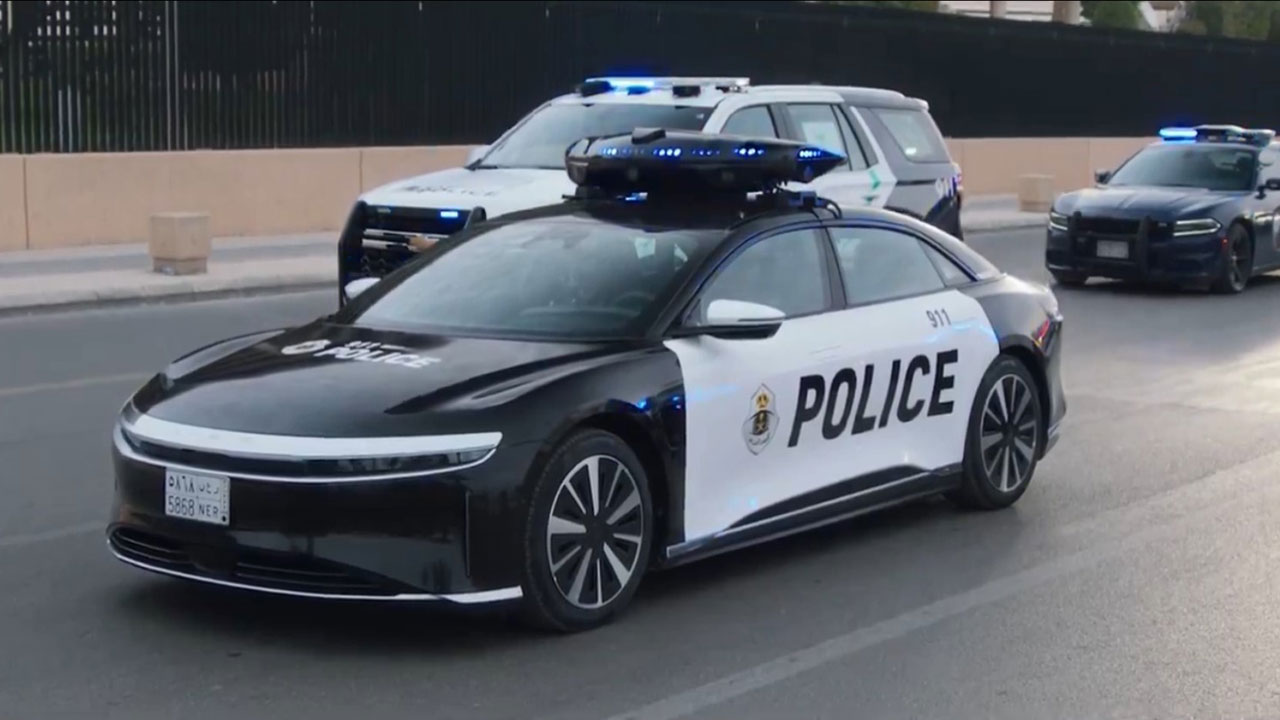Lucid's first-ever police car was unveiled on 4 February at the World Defense Show in Riyadh, the capital of Saudi Arabia. The Lucid Air conversion features a black and white police livery and additional equipment on the roof. What looks like an oversized array of sirens and strobe lights doubles as a carrier for a police drone. At the push of a button, the upper shell opens, allowing the drone to take off.
A single photo of the vehicle, hidden under a transparent cover, was published on X (ex-Twitter) by local media outlet Saudi Project. This was followed by a more revealing video of the police car, uploaded to X by the Saudi Ministry of Interior.
???? ?????? ?????? ??????? ??????? ??? ??? ??????.#????_?????
— ????? ???????? (@MOISaudiArabia) February 3, 2024
Security efforts, advanced technologies, for the future of a safe and thriving country.#WDS2024#EquippedForTomorrow pic.twitter.com/75K8lnmgvt
While we don't have any photos of the interior, it's likely that Lucid has modified the cabin to better suit the needs of law enforcement officers. These modifications often include extra screens and a mobile radio, although it's possible that some of these elements have been integrated into the large infotainment display.
In any case, the World Defense Show takes place from 4 to 8 February, so we expect to see more photos of the EV online soon, along with additional information about the fleet.
The news comes as no surprise given that Saudi Arabia's sovereign fund owns up to 60 per cent of Lucid Motors. The local government has a deal with Lucid to buy up to 100,000 EVs over the next decade, and the Public Investment Fund (PIF) has invested $10 billion in the carmaker.
Lucid Motors has the only EV factory in the region. It is expected to play a major role in Saudi Arabia's transition from fossil fuels to battery-powered cars, alongside a state-owned startup called Ceer, a joint venture between PIF and Foxconn. For now, Lucid's factory in Saudi Arabia is limited to assembling vehicles that come as kits from its factory in the US.
Source: Saudi Project

